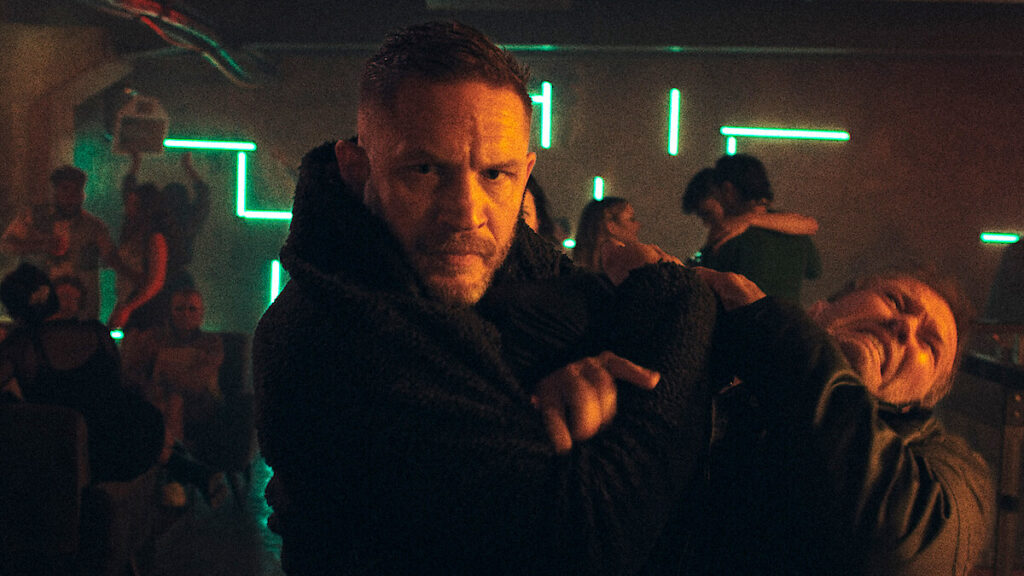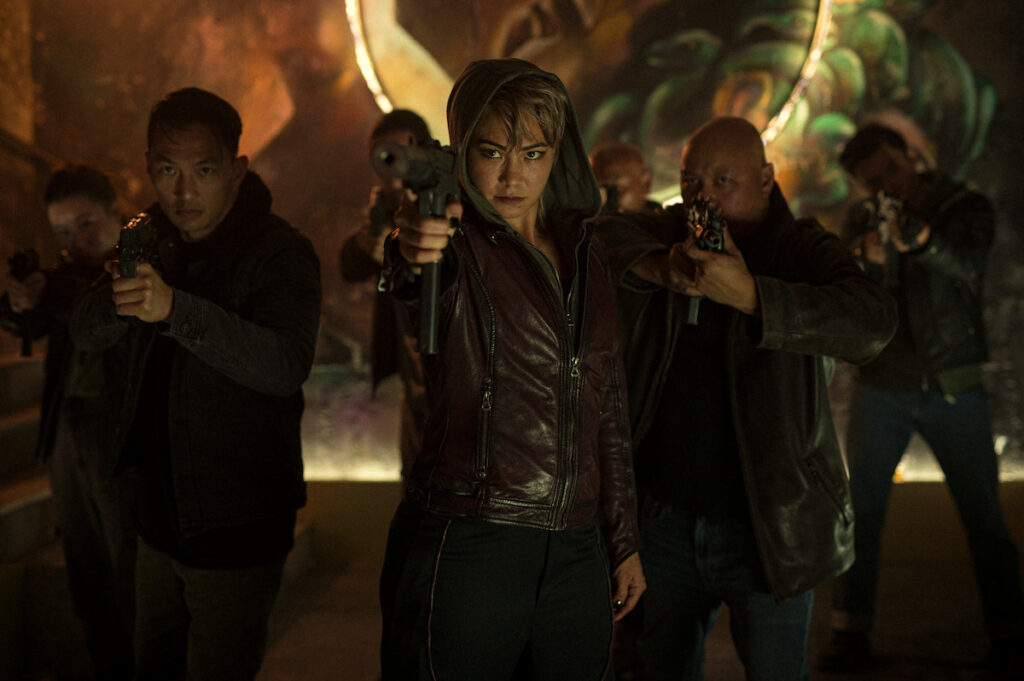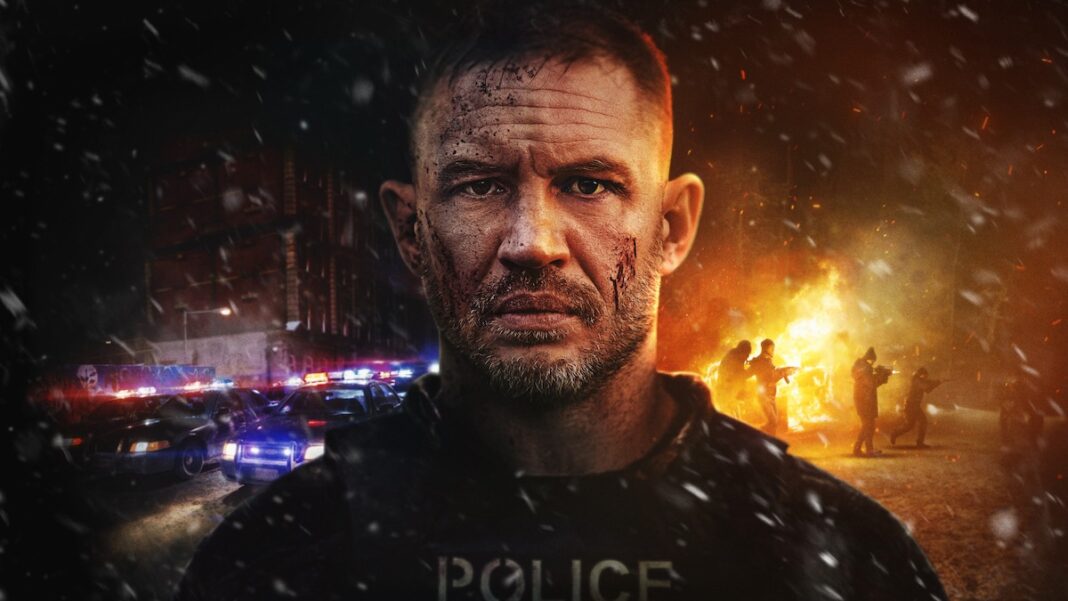At first glance, Havoc appears to be another run-of-the-mill, one-word action title — blunt, gritty, and designed for instant impact. But dig into its dictionary definition, and “havoc” suggests more than just devastation — it connotes confusion, chaos, and disorder. That’s exactly what director Gareth Evans delivers in this ultra-violent, frenzied ride through a grimy, fictional American city overrun by crooked cops and ruthless gangsters.
Tom Hardy stars as Walker, the least corrupt member of a narcotics unit gone rogue. It’s Christmas Eve, and the city — a blend of Gotham’s underbelly and decaying noir aesthetics — is crawling with triad enforcers and shady lawmen. Hardy leans fully into the gritty antihero archetype, battered and broken, channeling a worn-out resilience reminiscent of Die Hard‘s John McClane.
The plot is as cluttered as the city’s skyline. Walker’s unit, led by a sinister Timothy Olyphant, is caught in a double-cross while trying to rip off a drug shipment hidden inside a trailer full of washing machines. Flashbacks fragment the story, introducing real estate mogul Lawrence Beaumont (Forest Whitaker), whose political future Walker once salvaged, and rookie partner Ellie (Jessie Mei Li), who barely makes a dent in the narrative.

Moments meant to ground Walker — like shopping for his daughter — are quickly overshadowed by disjointed chaos. Gunfights erupt offscreen, dramatic stakes are buried in overused tropes, and scenes suffer from awkward editing. Visual effects feel clumsy, evoking comparisons to Speed Racer — except without intentional stylization.
The narrative grows murkier with the introduction of Charlie (Justin Cornwell), Beaumont’s son, and his girlfriend Mia (Quelin Sepulveda, who arguably brings more intrigue than the film’s lead). Their entanglement with triad boss “Little Sister” (Yeo Yann Yann) leads to the film’s most memorable sequence: a 10-minute bloodbath in a nightclub set to back-to-back Gesaffelstein tracks. While stylishly choreographed and reminiscent of Evans’ earlier triumphs like The Raid, it feels oddly dated and tonally disjointed from the rest of the movie.

Unfortunately, the energy peaks there. The final act — a drawn-out siege on Walker’s secluded cabin — drags on, thinning out the bloated cast until only a handful remain. Despite Hardy, Whitaker, and Olyphant doing their best to elevate the material, the script’s lack of emotional depth, cardboard characters, and an over-reliance on spectacle betray Evans’ limitations outside of pure action direction.
There’s no shortage of brutality in Havoc, but with little character connection or narrative clarity, the destruction feels hollow. Evans can still craft a mean set-piece, but this time, he may have confused carnage for compelling cinema.


